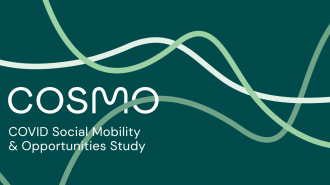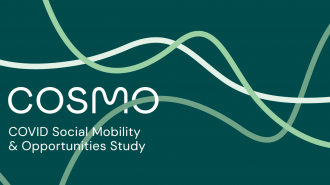
- Our studies
- Our research
- Publications and resources
- Data access and training
- About
- News
- Events
- Get in touch
- Join our mailing list

Welcome to our news and blogs section. Here you’ll find the latest developments and insights from across our longitudinal studies.
Data from the 1970 British Cohort Study (BCS70) Age 51 Sweep are now available to download from the UK Data Service.

Up to 34% of A-level students are considering living at home if they get into their preferred university next week, according to new UCL and Sutton Trust research, using data from the COVID Social Mobility & Opportunities (COSMO) study.

Men are 34% more likely than women to be employed in top jobs at age 42 with overconfidence explaining up to 11% of the gender gap, on average, for full-time workers.
Generation Z children born into the poorest fifth of families in the UK are 12 times more likely to experience a raft of poor health and educational outcomes by the age of 17 compared to more affluent peers, finds a new report led by UCL researchers.
This short webinar gives first-time users and researchers less familiar with the Millennium Cohort Study (MCS) an insight into this unique longitudinal cohort dataset born at the turn of the century.
This training webinar gives first-time users and researchers less familiar with Next Steps an insight into this unique cohort of ‘millennials’ in England.
Around half of all young people who reported experiencing long COVID felt they had fallen behind their classmates due to the COVID-19 pandemic – with almost three in five saying that they had not caught up with lost learning – according to new research involving UCL.

Poor mental health among young people (aged 16 and 17) has increased by more than a quarter since 2017, according to new research by UCL and the Sutton Trust, using the COVID Social Mobility & Opportunities (COSMO) study.

Four in five students report that their academic progress has suffered, and two thirds say their future educational plans have changed due to the pandemic.

Children conceived through medically assisted reproduction (MAR) fare better at school but are slightly more likely to have mental health problems by their late teens, finds a new study led by researchers at UCL and the University of Helsinki.

Private school pupils in England do not tend to report better mental health or greater life satisfaction in early adulthood than their state-educated peers.
Watch again: this webinar gives first-time users and researchers less familiar with Next Steps an insight into this unique cohort of ‘millennials’ in England.
Ryan Bradshaw
Senior Communications Officer
Phone: 020 7612 6516
Email: r.bradshaw@ucl.ac.uk